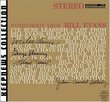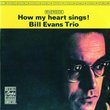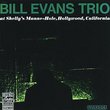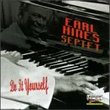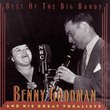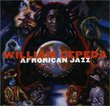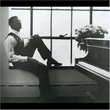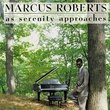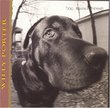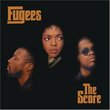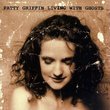| All Artists: Bill Evans Title: New Jazz Conceptions Members Wishing: 1 Total Copies: 0 Label: Ojc Release Date: 7/1/1991 Genres: Jazz, Pop Styles: Cool Jazz, Modern Postbebop, Bebop Number of Discs: 1 SwapaCD Credits: 1 UPC: 025218602525 |
Search - Bill Evans :: New Jazz Conceptions
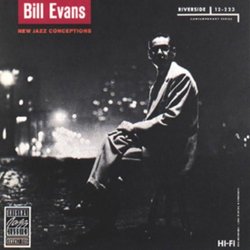 | Bill Evans New Jazz Conceptions Genres: Jazz, Pop
2009 release containing Bill Evans' debut album as a leader. Originally released in 1956, New Jazz Conceptions is featured here in its entirety, including an alternate version of 'No Cover, No Minimum' that completes the s... more » |
Larger Image |
CD DetailsSynopsis
Album Description 2009 release containing Bill Evans' debut album as a leader. Originally released in 1956, New Jazz Conceptions is featured here in its entirety, including an alternate version of 'No Cover, No Minimum' that completes the session. Added as a bonus, a couple of rare sessions from the same period, which feature Evans as a sideman on sessions for guitarists Dick Garc¡a and Joe Puma. 52nd Street. Similar CDs
Similarly Requested CDs
|
CD ReviewsRemarkable Debut Samuel Chell | Kenosha,, WI United States | 12/27/2001 (5 out of 5 stars) "Bill's first album under his own name, recorded when he was 26, is of primary value to the Evans' collector, who can read about the album's background in Peter Pettinger's "How My Heart Sings." More than the personal expression of the artist, it's a revealing, extrovertish "statement" by the newest young pianist on the block, eager to prove he's a major contender in a field of few giants and many pretenders.Evans' own composition, "Five," disguises rhythmic complexity within a simple Monkish melody. And on another original, "Displacement," his breathless, dazzling bebop lines evoke the melodic/rhythmic complexity of Bud Powell played in the flawless, incisive technical manner of Lennie Tristano. By contrast, the two takes of "No Cover, No Minimum," a simple blues in G, find Bill struggling a bit to contain his technique sufficiently to produce a Horace Silver double-time feel.But there's also some hint of what's to come--Bill's "Waltz for Debbie," played more floridly here than on the later recordings, and "My Romance," which he would return to again and again during the final year of life.An album such as this exposes the rugged machinery, the technical mastery, that serves as a foundation for many of the most original creative artists--from Coltrane to Schoenberg to Picasso. It's that rock-solid inner core that permits the groundbreaking artist to expose his vulnerability and at the same time inspires our trust." Evans' Debut Album M J Miller | Park City, UT, USA | 02/25/2001 (4 out of 5 stars) "I was first exposed to Evans through his work with Miles Davis, particularly the classic "Kind of Blue", on which his contribution equals or exceeds that of Davis himself. This is a fine album, and might be a highlight in the discography of a lesser keyboardist. But by Evans' standards, this album pales in comparison to those that would soon follow, including "Everybody Digs...", "Portrait in Jazz" and "Waltz For Debby". This should not be your first Bill Evans purchase, but you will appreciate it's historical significance if you are an Evans fan." Four Stars Doesn't Do This Justice Fly By Light | Atlanta, Georgia | 06/23/2007 (5 out of 5 stars) "I love upbeat, energetic playing and this instantly engaging CD is crammed full of it. The muscular playing and energy level of many songs equals or even surpasses that of Portrait Jazz and Live and Montreux. Paul Motian (legendary drummer on Portrait, Explorations and Village Vanguard) delivers with typical flair, while Teddy Kotick spends much more time in the background more than Evans' later bass players. Although I enjoy Scott Lafaro's frequent and lengthy solos, the much smaller dose of bass solos on Conceptions makes it much more enjoyable for me than listening to Eddie Gomez go on and on. Being a 1956 recording, New Conceptions lacks slightly in clarity compared to later works, but does not detract at all from the listener experience.
It would be unfair to say that Evans' technique on Conceptions lacks in any way - the "Bill Evans" sound is unmistakable, though influences show up much more clearly here than in later recordings. His characteristic syncopations are already operating in full force in the appropriately titled, "Displacement". The dense and sometimes dissonant harmonies are a bit more obvious on this recording that on later Evans recordings. Although some (like "Five") sometimes bring Thelonious Monk to mind, Evans' rougher textures are not introduced quite so abruptly as Monk's, so they are not as startling. Evans' solos and solo intros (like the intros to "Conception" and "Speak Low") have flourishes that suggest the influence of Bud Powell, one of Evans' heros. Again, Evans shows more restraint that his predecessor, leaving out the more manic fills than Powell often included. The two bonus cuts of "No Cover, No Minimum" offer something a little different: Evans injecting his jazz and classical influences (and Mexican Hat Dance) into the blues. As with many other Evans bonus cuts, these lack a bit of the fire of the original album cuts (Give the poor guy a break - he did not like recording and obviously didn't want these cuts released for a reason!) Some might consider them too "formal sounding" to be true "blues", but they are still excellent, enjoyable and instructive. What does this CD lack that later ones have? First, Scott Lafaro is not providing his groundbreaking bass accompaniments and solos. These clearly made later recordings special, but Conceptions would be a mess with Evans' arrangements played over Lafaro-style bass parts. Second, Conceptions lacks the restraint and subtlety that permeates the Village Vanguard recordings. This is the other side of the same coin - at the Village Vanguard, Evans left a lot more sonic "space" for Lafaro and Motian to work, so the music does not become too cluttered. By this time, Evans has fully integrated the "less is more" approach into his arrangements. This sparser style tends more to draw listeners in, whereas the density of Conceptions tends to jump out into the audience and meet the listeners. If you are an Evans fan and wish you could hear him at his most extroverted (a la Montreux or Portrait), without all the bass solos, this is a wonderful CD to try. It may not be the Village Vanguard, but four stars does not do it justice." |

 Track Listings (12) - Disc #1
Track Listings (12) - Disc #1